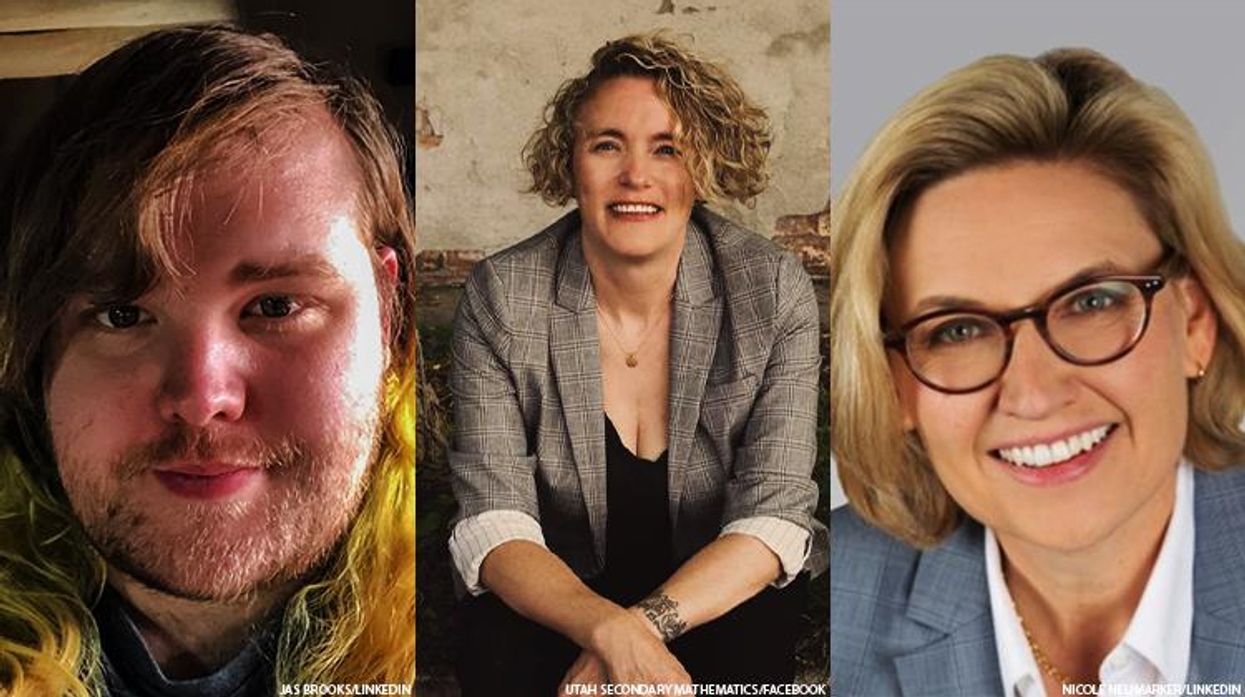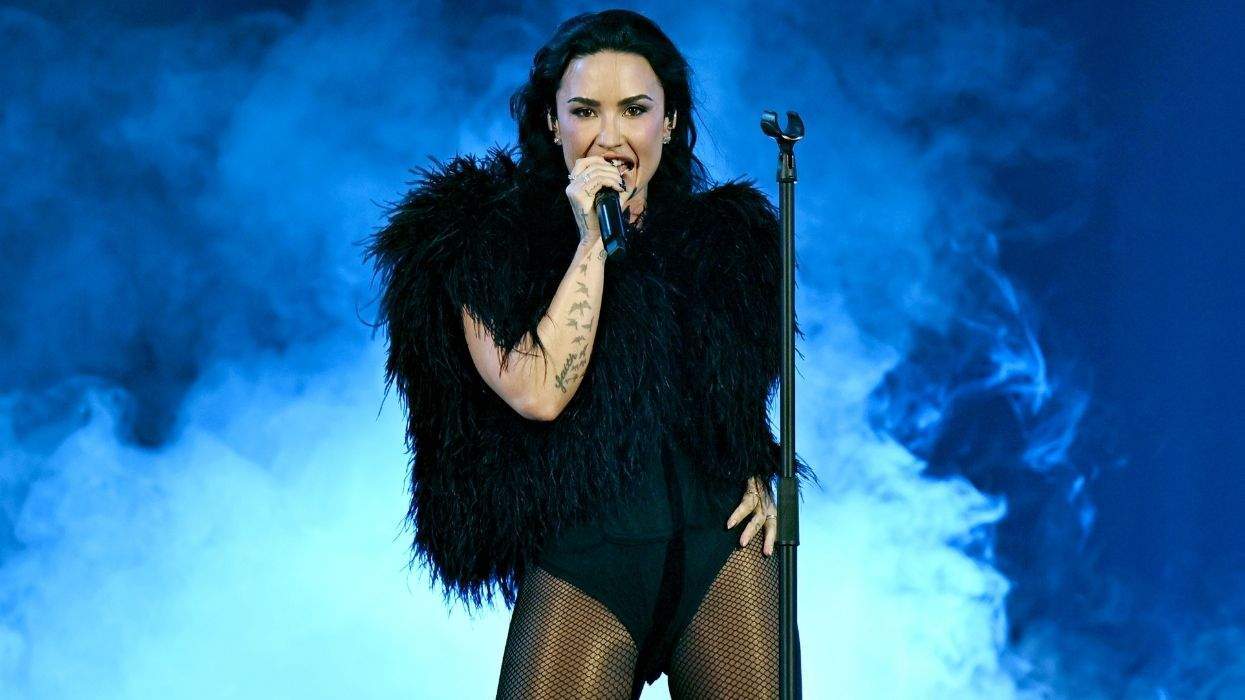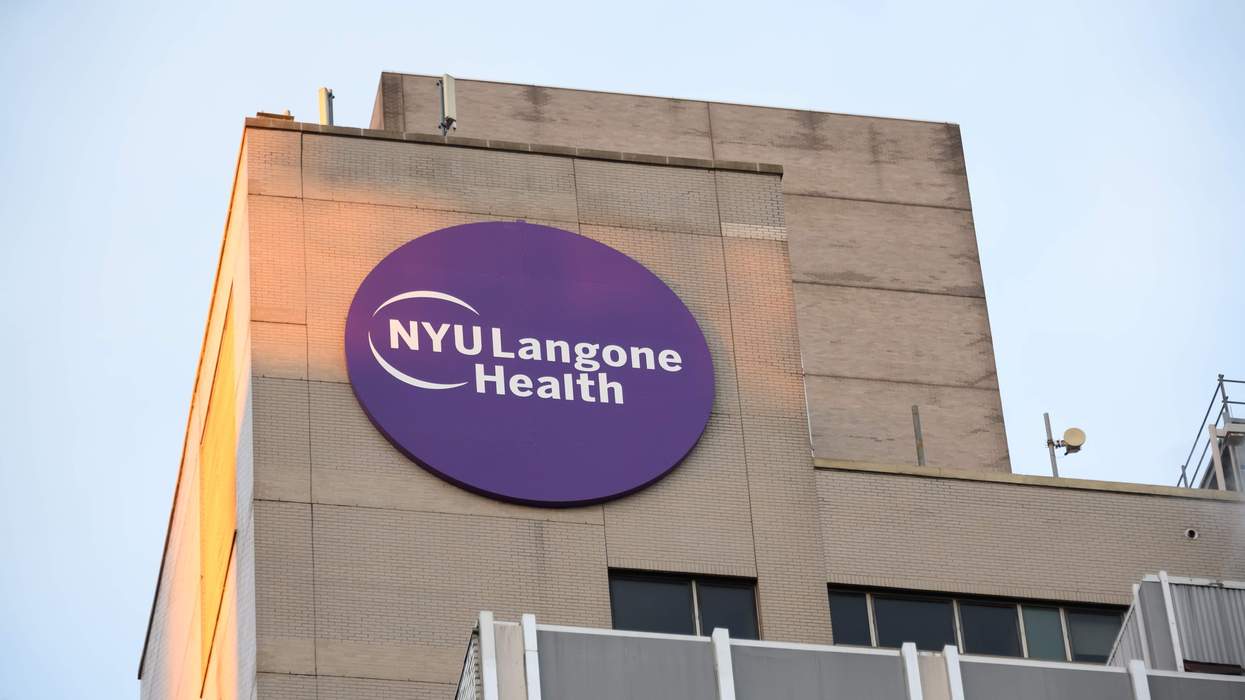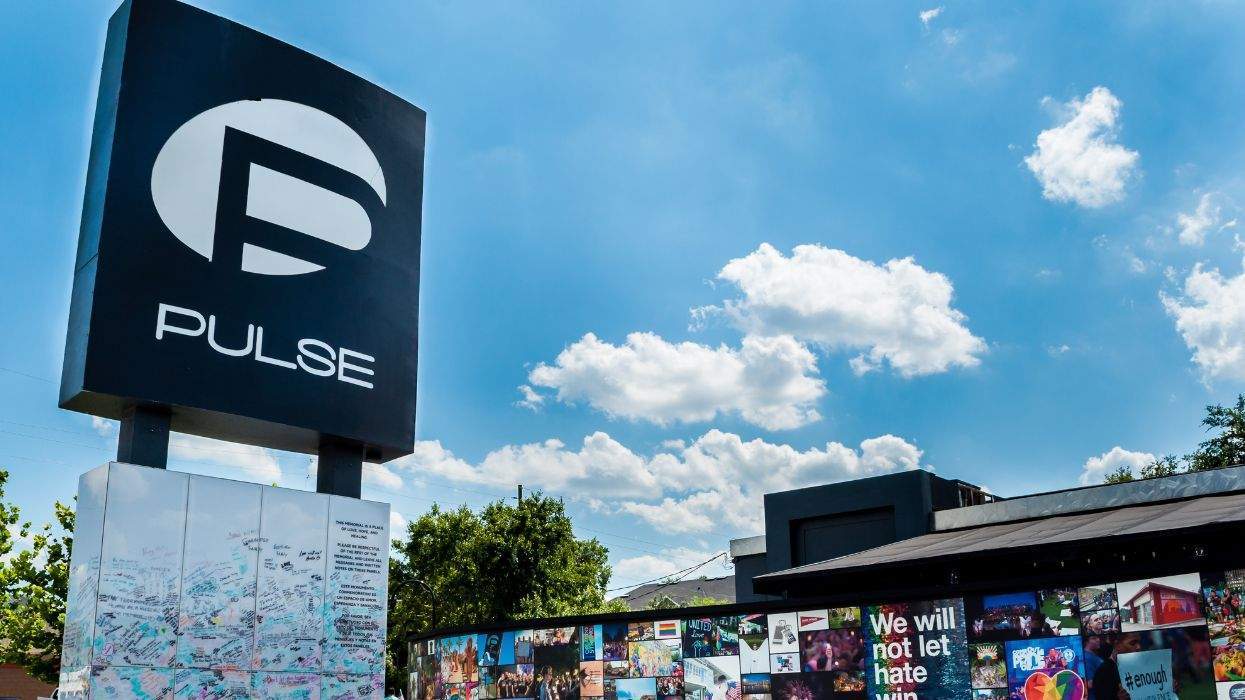The world's scientists celebrated Pride in STEM Day on Friday, November 18.
Pride in STEM is a nonprofit that runs events and activities together with an extensive network of worldwide volunteers in science-related fields. With Pride in STEM, LGBTQ+ people's struggle in science, technology, engineering, and mathematics (STEM) is highlighted.
First designated in 2020, the day also honors American astronomer and gay activist Frank Kameny, and recognizes the anniversary of Kameny's U.S. Supreme Court fight against workplace discrimination. The scientist has been called the "grandfather of gay rights."
"Kameny was working in Hawaii and was sent to Washington, D.C., in 1957 and ordered to report to the Pentagon, because the Defense Department had reason to believe he was gay," historian Eric Cervini told The Advocate earlier this year. "And after a series of really humiliating interviews, Kameny, like countless other gay men and women before him, was dismissed from his government job; however, unlike others, Kameny fought back."
But even today LGBTQ+ people say they face workplace hostility and discrimination.
"When I was in undergrad, my first brushes with odd encounters in terms of being queer and [others] realizing that, was especially [prevalent in] more tech bro circles," University of Chicago computer sciences Ph.D. student Jas Brooks tells The Advocate.
Brooks studies the intersection of technology -- more specifically, wearable tech -- and human sensory experiences.
"I focus on essentially developing ways for the computer to interface with our chemical senses or how we interact chemically with our bodies," they say. "So, for example, helping with smell, tastes, potentially helping with disorders such as smell loss."
Their research predates the COVID-19 pandemic, but they say their technology could someday be applied to treat smell loss, a common symptom. Brooks says that being queer in tech comes with a certain level of discomfort.
"It's very noticeable when you're not essentially a cis white man," they say.
Brooks explained that although they'd been out for a long time, a level of comfort surrounding others' acceptance developed as they advanced through their education.
"I think it's when I started interacting with other people in the classes that were not tech bros, I felt a lot more confident about my place in that space," Brooks says.
As a graduate student, Brooks says attitudes in their surroundings have improved significantly, making the experience overall affirming. But there's one thing they say is difficult as a transgender or nonbinary person: changing one's name on research.
"When I started graduate school, my adviser and I had a very honest conversation about the choice of your name," Brooks says. "Oftentimes, when you transition and end up with your chosen name or go through the legal [name change], that's not reflected in your citations."
"It's very hard to transfer citations after transitioning, in Google Scholar, for example," Brooks says. "So my adviser was really helpful in that I started publishing with my chosen name."
Married couple Nicole Neumarker and Lindsey Henderson are two other queer scientists living STEM through and through.
Each has earned a Women Tech Award for their pioneering work in data science. The pair live in Utah, along with their kids and cats. Both are wildly successful as decision-makers for large science-based organizations.
At Cotiviti, a health care analytics and innovation company, Neumarker is executive vice president for development and innovation. Henderson is responsible for determining how Utah students learn mathematics and what courses are appropriate for their future careers as the secondary mathematics specialist for the Utah State Board of Education.
Both are passionate about data literacy.
Neumarker says being a woman has been the more significant challenge professionally, even though her being gay was of interest to a few people along the way.
"Queer women and men, for that matter, really know how to step into the dialogue and step into hard conversations," she tells The Advocate. "They really do advance in technology, is what I've found. And if they're willing to step into that side of themselves, that vocal side of themselves, that really does benefit them."
She continues, "It's benefited me at times. Because if you can step up to your religious parents or community, that may be hazing you in some way growing up. And so they learn to step into hard conversations in business. And so these skills will translate. That's what I've found."
Henderson nods emphatically.
"I 100 percent agree," she says. "In my field, it's the overlap of mathematics and education. And I find that I'm always bringing stakeholders together that have many different opinions and trying to mitigate, you know, finding common ground."
Henderson adds, "Being gay has allowed me to say, 'I want to treat people like I wanted to be treated,' so what are the assets we can employ here? What are the things that we can all find common ground on?"
She says that being able to speak those truths and to be able to advocate for all students comes naturally because of having learned to advocate for herself as a gay person.
However, Henderson says that, as in all things, representation matters. She says building tolerance as a representative of the LGBTQ+ community and a leader in a STEM field is essential.
"As a gay woman who's in charge of math for a state -- it's so easy for people just to hate a concept -- it's so easy to hate gays or lesbians," she pauses, then adds, laughing, "It's really hard to hate Lindsey."
"Data is a skill that everybody needs to be an engaged citizen in today's day and age. It is the new literacy of 2022," Henderson says.
"You can either be a consumer of information or a critical thinker about information," she continues. "And it's super important that we get kids and we get the general public into that critical thinking about the information and what algorithms and things of that nature are feeding them."
Neumarker nods in agreement. "I would add that technology and industry are generally running leaps and bounds towards enabling individuals to access data more efficiently, to visualize it more effectively," Neumarker says.
"We have to do a lot more work to help educate kids at a younger age how to consume and manage and understand data so that it isn't overwhelming," she adds, mentioning that they've both been to the Lesbians Who Tech Conference. "They're doing some great things for visibility. But what I find is that -- I've mentored gay women and nongay women and men too -- there's something about being queer that you feel more comfortable speaking truth to power."
She adds, "I find that to be true. And so when you're queer in technology, technologists have to describe hard things, elevate hard things, and be part of dialogue a lot. So it's worthy of celebrating."
The European Space Agency tweeted its support, writing, "Today, we are celebrating the International Day of LGBTQIA+ People in STEM by flying the rainbow flag across all of our establishments #LGBTQSTEMDAY @LGBTSTEMDay"
"It's #LGBTQIASTEMDay, so to celebrate, we asked a selection of scientists, from physicists to geologists, to discuss their careers and experiences as LGBTQ+ people in STEM," tweeted The Royal Society, a distinguished group of fellows in science.
Even the World Wildlife Fund tweeted its support from Antarctica.
"HAPPY POLAR PRIDE DAY Today, @WWF joins global celebrations to mark LGBTQ+ in #STEM and the #polar science community But really, every day should be about diversity and inclusivity #PolarPride2022
@PridePolar @wwf_uk @LGBTSTEMDay #HappyPolarPrideDay," the organization wrote.
















Charlie Kirk DID say stoning gay people was the 'perfect law' — and these other heinous quotes
These are some of his worst comments about LGBTQ+ people made by Charlie Kirk.